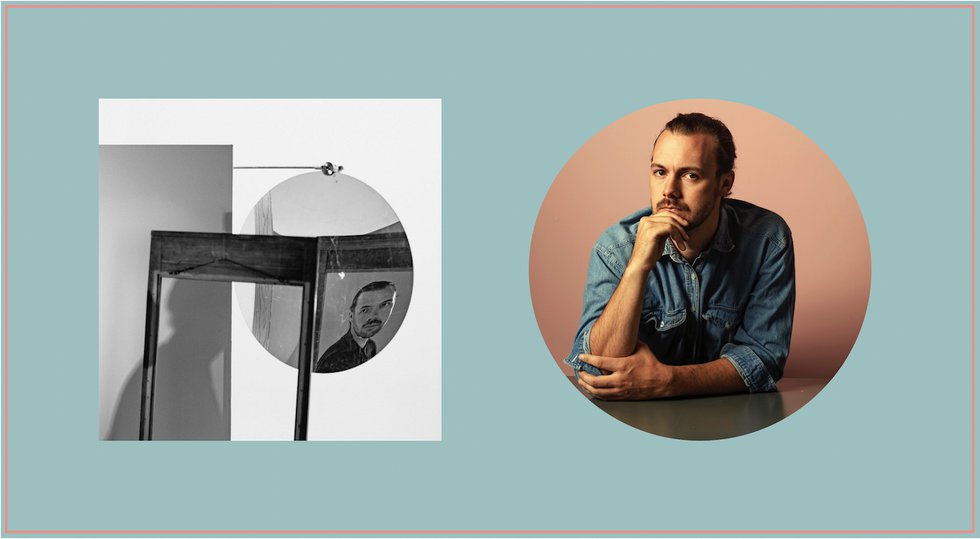There’s more to the Army than you might think. Meet a member of Pershing’s Own, some of our nation’s most elite musicians.

Photo by Ryan Donnell
“Would it be okay if I call you back in a few minutes?” he asks in a deferential tone, as if he actually needs permission. “I’m with some people at the moment, and I want to make sure I can hear you.” Sgt. First Class Martin Gold—one of the nation’s most accomplished clarinet players—made no mention of it at the time, but the “people” were his fellow members of The United States Army Band, “Pershing’s Own,” and the “moment” was a performance at The White House.
The stark contrast between Gold’s top-line talent and down-to-earth demeanor is neither act nor aberration. As grounded as he is gifted, the 39-year-old father of two eagerly calls attention to the achievements of his children, his wife, his brother—and even his latest Scrabble opponents—before he utters an unprompted word about his musical career.
Now in his sixteenth year with Pershing’s Own, Gold’s blend of skill and humility has served him well in a band that requires its members to excel at their craft’s highest level while also collaborating with others, adhering to specific protocols, and respecting the chain of command. Based out of Fort Myer in Arlington, Gold and his peers perform hundreds of gigs, both somber and celebratory, on an annual basis—from honor funerals at Arlington National Cemetery to July 4 extravaganzas—in front of audiences ranging from local schoolchildren to foreign dignitaries.
Gold spoke with author Greg Forbes Siegman for the February 2020 issue of Virginia Living.

Photo courtesy of the United States Army Band

Photo by Nell King/King Creative Studios
Virginia Living: When did you realize you had the talent to be a full-time musician?
Martin Gold: I don’t know that I ever did. I don’t like to assume anything. In fact, the first three times I tried out for a military band, I didn’t get offered a position, so I don’t take anything for granted.
VL: After those initial rejections, were you close to giving up and pursuing another career?
MG: It was discouraging, but I continued to put in the work, kept trying to improve, and hoped a career in the industry would come to fruition some day.
VL: How much work did it take?
MG: I began taking piano lessons when I was 4. I did that for six years. Starting in seventh grade, I took clarinet lessons once a week, and I continued doing that for years. I also joined the school band when I entered high school. At University of Florida, I got my degree in music education. At Indiana University, I received a Masters in clarinet performance. And that’s just my formal education. To this day, I still put in the work. The practicing and learning never really end.
VL: How did you decide on the clarinet?
MG: My mom played cello through college. She suggested I choose an instrument that would be easier to carry.
VL: How did she react when you decided to pursue a musical career?
MG: She understood and supported the gravitational pull I felt toward music—and in general, my parents have always been supportive of my aspirations—but she also knew the profession’s pitfalls. Her brother was a professional trombonist.

Photo by Ryan Donnell
VL: After all these years, do you still get nervous before a performance?
MG: I get nervous before an exposed [solo] feature or something difficult, but I have, for the most part, learned how to channel that nervous energy into productivity. As long as I know I’ve properly prepared, I’ll be confident.
VL: For many people, music helps them relax after work. For you, music is work. When you want to take your mind off of work, what do you do?
MG: One of my main hobbies is competitive Scrabble. I don’t know if it helps me as a musician, but being in the band did actually help me once in Scrabble. I was competing in the 2015 North American Scrabble Championship tournament. On my final turn, I threw down (A)NODIZED for 110 points and won the game. I thought of the word because the mini-medals on our Army uniforms are anodized.
VL: Outside of Arlington, where you live and work, what’s your favorite place in Virginia?
MG: Shenandoah National Park. Having said that, I still have a lot more of Virginia to explore. That is the great thing about the state’s vastness. I have lived here more than 15 years, and there are still parts of the state I need to check out.
VL: What is the best “hidden gem” spot to listen to music in Virginia?
MG: The Lyceum in Old Town Alexandria. They have a great recital series.
VL: What qualifies as “good” music?
MG: If you like it and it moves you, it’s good. It doesn’t matter what a critic says.
VL: What would you tell parents whose kids have an interest in playing music?
MG: Encourage your kids to pursue that passion. And pick an instrument that fits in the car.
Learn more about The United States Army Band at USArmyBand.com.










